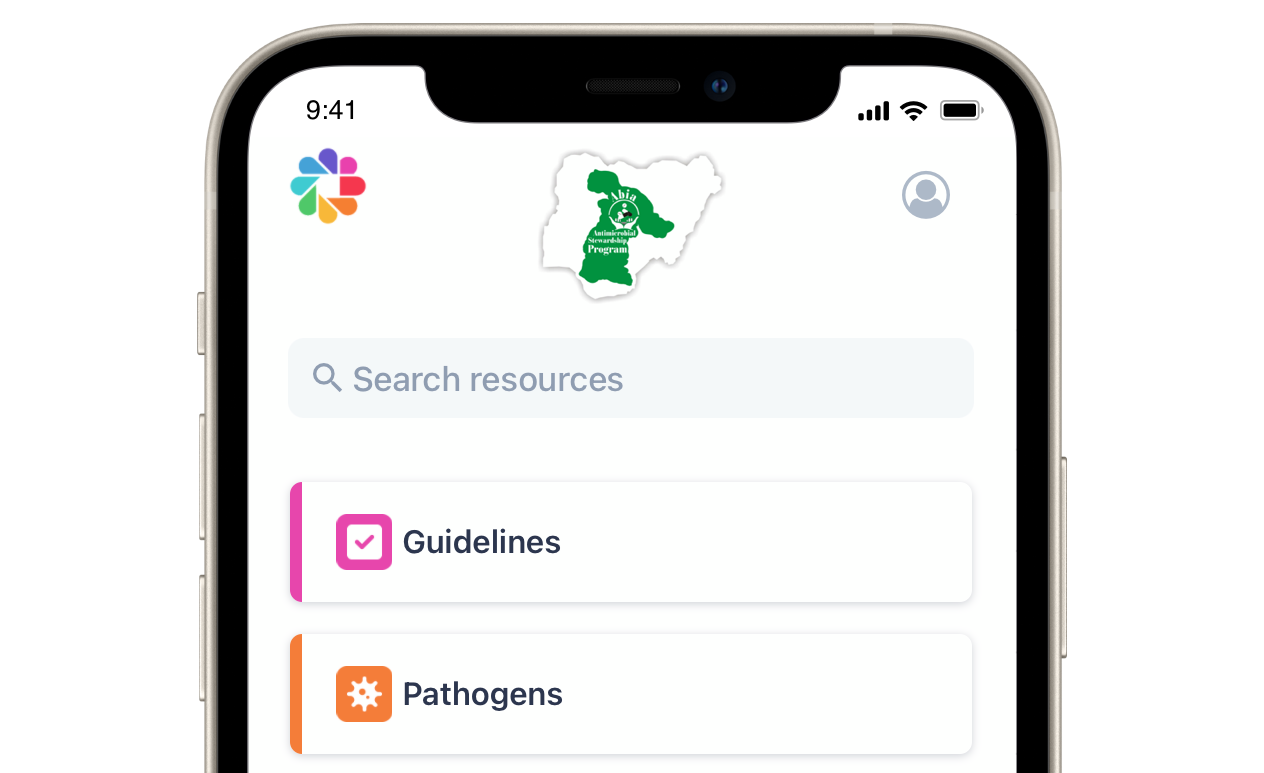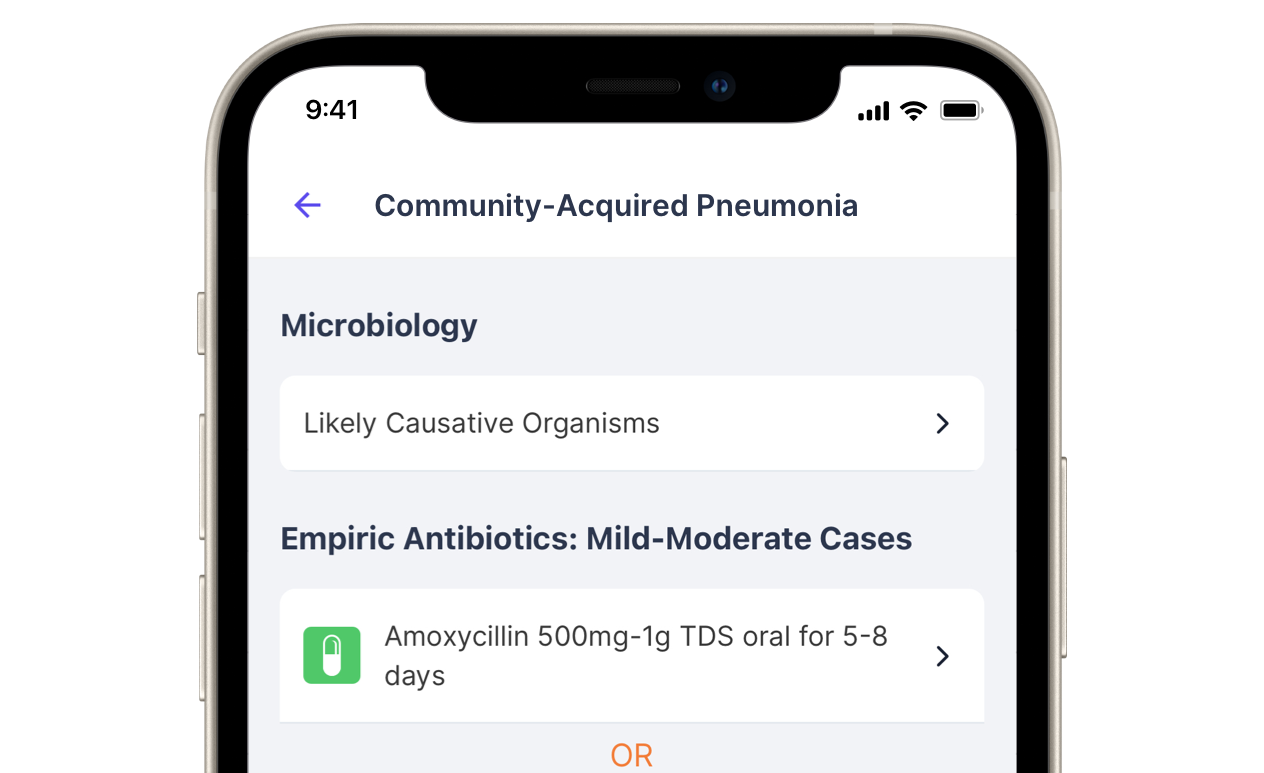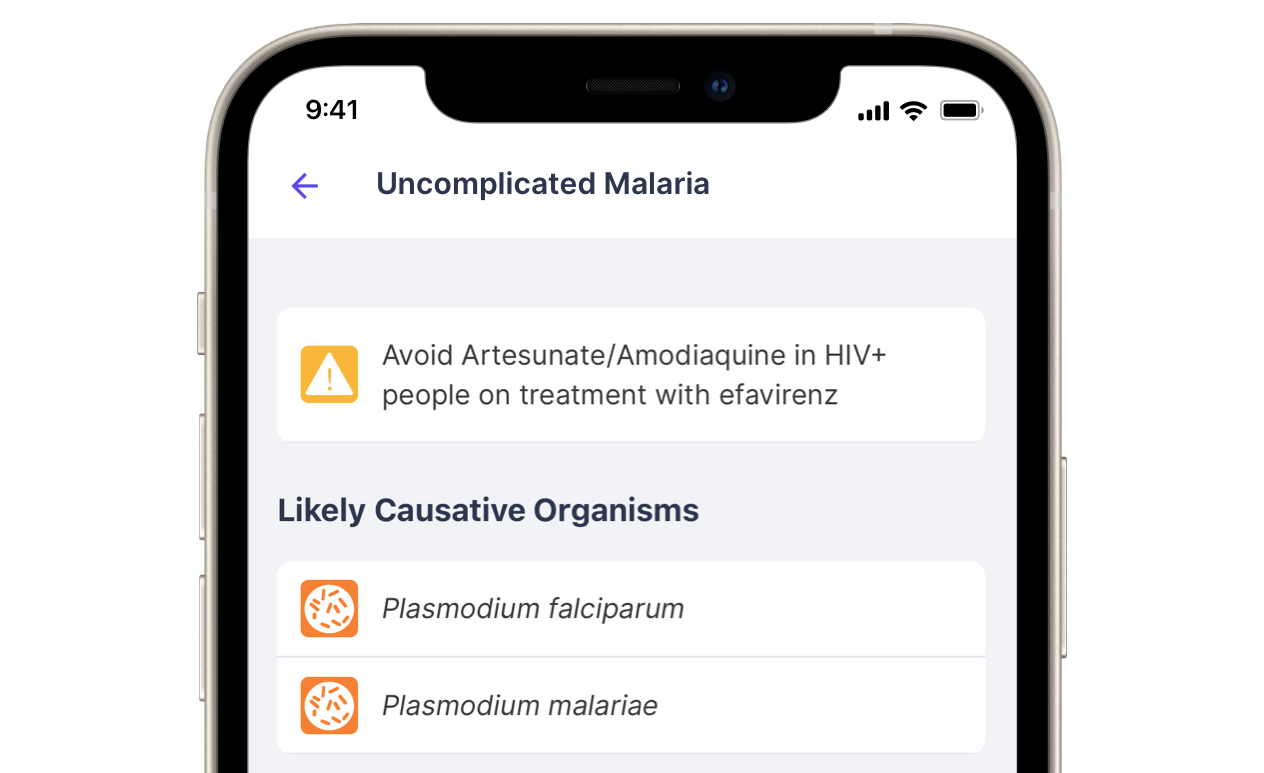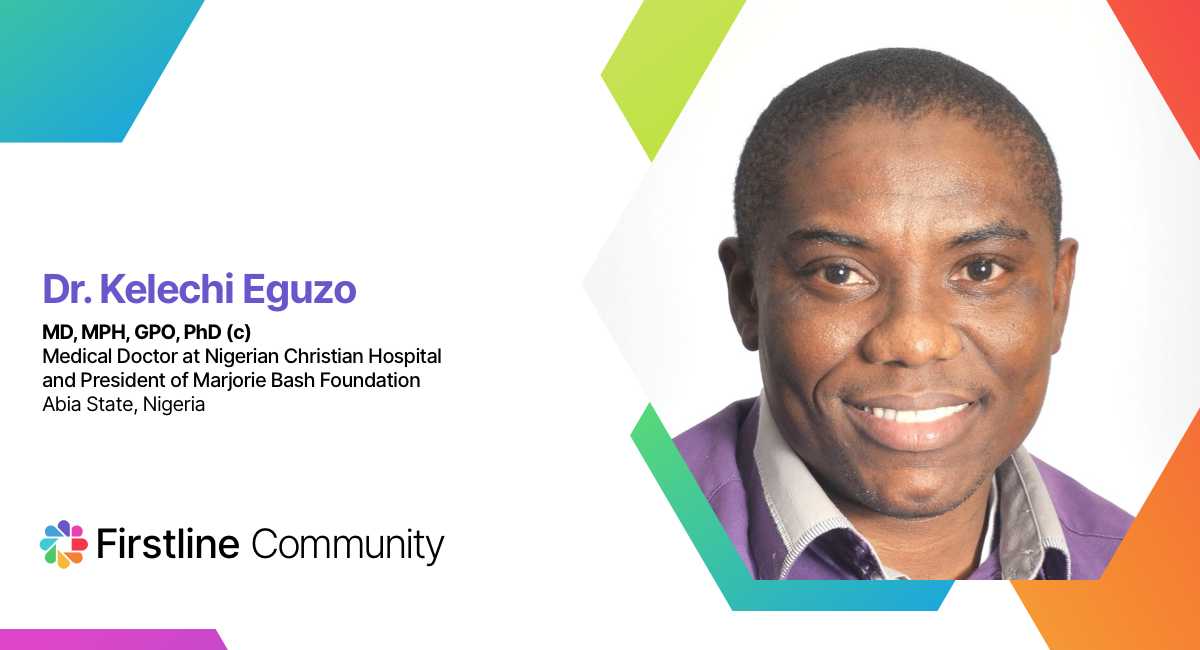Firstline’s Humanitarian mission is to protect the world from the rise of drug-resistant infections by helping healthcare organizations deliver localized infectious disease guidelines on a widely accessible device. We recently spoke with Dr. Kelechi Eguzo, who is leading the effort to develop standardized guidance in Abia State, Nigeria using the Firstline platform.
Dr. Eguzo, please tell us about your role in Antimicrobial Stewardship (AMS) in Abia State, Nigeria.
Kelechi Eguzo: I am a general practitioner at Nigerian Christian Hospital. Recently, I have been leading an Antimicrobial Stewardship project in Abia State. The aim of this project is to introduce the use of clinical guidelines for making decisions regarding antibiotic use.

What is the status of Antimicrobial Stewardship in Nigeria?
Kelechi Eguzo: Generally, Antimicrobial Stewardship is a new concept in Nigeria. The National Centers for Disease Control (NCDC) has a unit that focuses on stewardship, however, their activities are limited to a few tertiary hospitals. The Nigerian equivalent of an antimicrobial guideline is too broad and not very well known nor used in clinical practice.
Before the start of this project, there were no specific antibiotics guidelines in Abia State. Most clinicians depended on what they learned in medical school or updates to their knowledge through clinical conferences.
People in Nigeria can also access antibiotics without a prescription, just like many other developing countries. The current policy prohibits the over-the-counter sale of antibiotics. However, it is not effective without any enforcement.
"Variations in local susceptibility influenced our choice of first and second-line agents. Also, some antibiotics such as meropenem were difficult to access in our setting so these had to be changed to drugs that were more affordable in the local pharmacies." - Dr. Kelechi Eguzo
What are the traditional ways providers use to find up-to-date and standardized guidelines for prescribing antimicrobial agents? What are the challenges?
Kelechi Eguzo: The common ways by which clinicians get up-to-date information is through presentations made by other clinicians during CME events or through drug reps. People also check the internet but keep in mind that most of the recommendations were based on studies done outside Nigeria.
The challenge is having the correct information at the right time. Many antibiotics recommendations can only be accessed with active internet or through printed books such as the British National Formulary or EMDEX. So having guidelines that are deployed through mobile apps might help with access to information.
Tell us the process you went through to develop localized guidelines for Abia State? Did you utilize the Firstline Library?
Kelechi Eguzo: First, we searched for guidelines from developing countries such as India and Malaysia, and developed countries such as Canada, in particular, the Saskatchewan Health Authority (SHA). We also copied some content from the Firstline Library, such as the SHA guidelines on COVID-19 and Respiratory tract infections.

Variations in local susceptibility influenced our choice of first and second-line agents. Also, some antibiotics such as meropenem were difficult to access in our setting so these had to be changed to drugs that were more affordable in the local pharmacies.
What were some important criteria you considered when selecting Firstline as a partner to disseminate your guidelines?
Kelechi Eguzo: We considered that Firstline had android and iOS versions. This made it a robust partner for our implementation. We also had concerns about the cost of internet data in Nigeria, so it was important that the Firstline app is available offline.
The team at Firstline was very accommodating and easy to work with. Their suggestions helped to make our guidelines better and more relevant to our setting. We could not have asked for a better partner to disseminate the Abia Antibiotics Guidelines.
What impacts have you seen so far with the implementation of Firstline to deliver standardized guidance?
Kelechi Eguzo: Since the implementation of Firstline, we noticed an improvement in the appropriateness of antibiotic choices made by clinicians.
Our project with Firstline was funded through a quality improvement grant from Pfizer. As part of the project, we asked providers to rate their antibiotic choices at the beginning of the training and at the end. We noticed a significant improvement in their choices. For instance, 22% more participants did not choose antibiotics for upper respiratory tract infections, and 18% did not choose to give antibiotics for malaria.

Do you have any stories to share?
Kelechi Eguzo: You bet, there are always stories! Here’s a quote from someone who participated in our stewardship training in 2020: “The knowledge gotten during the training, and [using] the app made me not jump into prescribing antibiotics for a simple cough anymore”.
What AMS effort are you currently working on?
Kelechi Eguzo: Marjorie Bash Foundation is collaborating with the Federal Medical Center (FMC-Umuahia), Abia State) to step up AMS. FMC is the largest medical facility in Abia State but they could not participate in the initial launch of Firstline.
On March 15, 2022, we will co-host the “Innovate!” Public Lecture with them. The theme of the lecture will be “Multidisciplinary Antimicrobial Stewardship: The role of antibiotics guidelines and mobile technology.” Our target is to use this event to rekindle AMS in Abia State.
We are also working on a One-Health approach to AMS by collaborating with veterinary doctors. Our plan will be to add a vet component to Abia Firstline! Thank you for your interest in our AMS project.
Read more about Firstline’s Humanitarian mission.
Read about how Firstline’s library works.
Learn more about the results others have seen with Firstline.
Join Dr. Kelechi Eguzo and contribute to the ID discussion on Firstline Community.
